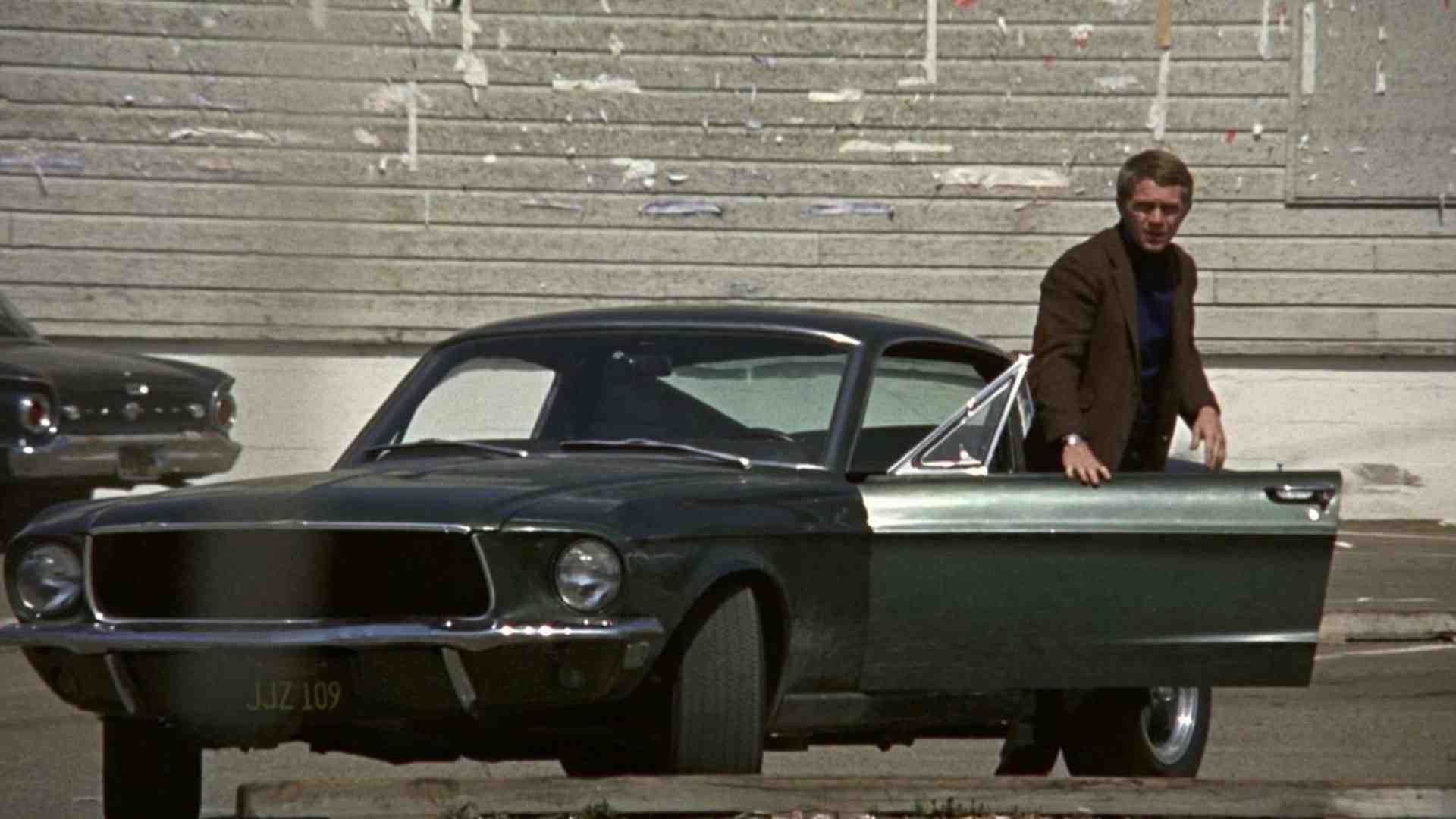Action cinema begins with Steve McQueen and one incredible car chase
Photo: Warner Bros.
With A History Of Violence, Tom Breihan picks the most important action movie of every year, starting with the genre’s birth and moving right up to whatever Vin Diesel’s doing this very minute.
Bullitt (1968)
When you talk about the history of action movies, you sort of have to define what an action movie is first. As with any movie genre, lines blur, and movies can be multiple things at once. Action—fights, chases, bodies forced into extreme circumstances—has been a part of narrative cinema since narrative cinema became a thing. If you wanted to be ultra-pedantic, you could say that the 1903 silent film The Great Train Robbery was the first action movie, though it would take a whole lot of work to draw a historical line between that and John Wick.
For the purposes of this column, action movies didn’t arrive in their modern and fully-formed state until the late ’60s. There were other genres of movies that supplied the kinds of thrills that action movies would later provide: Westerns, war movies, crime thrillers. (All those genres will appear, in hybridized forms, in this column later on. We’re also going to stay away from things like superhero movies, sci-fi, fantasy, and Oscar bait, except in the rare instances when those genres cross over fully with the action genre.) And there were movies that could be considered proto-action movies: John Sturges’ 1955 Bad Day At Black Rock, Hitchcock’s 1959 North By Northwest, all the early movies in the Bond series.
I should also add that the whole goal of this column is to pick the most important action movie of every year, not necessarily the best or most beloved. (Most of the time, though, it probably will be the best or most beloved action movie of its year, partly because bullshit usually doesn’t leave that deep of an impact and partly because I have no desire to rewatch a bunch of bullshit.) Think my friend Shea Serrano’s The Rap Year Book, the obvious inspiration for this column, which you should definitely go read.
This column could’ve honestly started a year earlier, with John Boorman’s tough and stylish Lee Marvin revenge yarn Point Blank. (See that movie if you haven’t.) And maybe it’s a little arbitrary to start in 1968 instead. But this was the moment when a hard-edged, unflinching, modern action movie—one built as much around its set pieces as its characters—found mass acceptance. With minimal changes, Bullitt could’ve come out at any point in the last 50 years, and Charles Bronson or Bruce Willis or Jason Statham could’ve filled the role of San Francisco police lieutenant Frank Bullitt, a man so tough he’s named after a misspelling of the word “bullet.” But we’re lucky we had Steve McQueen.
Bullitt was absolutely McQueen’s baby. Solar Productions, McQueen’s company, made the movie, and McQueen himself recruited its director, Peter Yates. McQueen specifically hired Yates because he wanted a kickass chase scene in his movie and because he was impressed by the chase in Yates’s previous movie, the 1967 British caper Robbery. Even though Bullitt’s famous car chase only arrives two thirds of the way through and doesn’t have that much of an impact on its plot, it’s the part of the movie that everyone remembers. That’s no accident. It seems like McQueen had that scene in mind when he started putting it together.
It almost seems too obvious to say, but McQueen could not possibly be more perfect for the role. His Frank Bullitt is a hard-edged cop who doesn’t give a damn about office politics and who is going to get his man whatever happens—a type we’ve seen again and again over the years. He also has a life outside his job, though we only get to see bits and pieces of it. (He hangs out with Jacqueline Bisset in restaurants where funky jazz bands are playing, which seems like a pretty good way to spend your time.) When we first see him, he’s recovering from a wicked hangover, an entrance that Bruce Willis may have stolen for, what, 75 percent of his movies? We don’t have to be told that Bullitt is an ice-cold motherfucker; Lalo Schifrin’s strutting score and McQueen’s icy blue-eyed intensity does all that work for us. His best line, directed at a meddling politician: “You work your side of the street, and I’ll work mine.” When he’s working, McQueen’s Bullitt is edgy and alert and perfectly willing to drive at ridiculous speeds while Chicago mob hit men fire off shotguns at him.
 Keep scrolling for more great stories.
Keep scrolling for more great stories.
